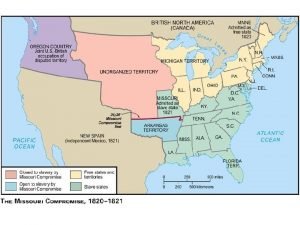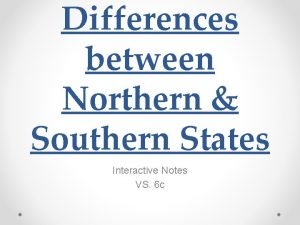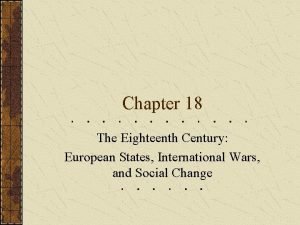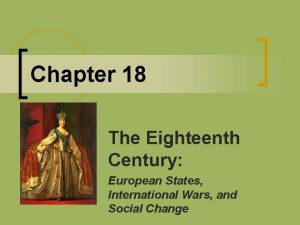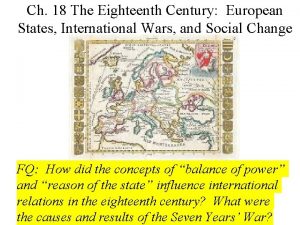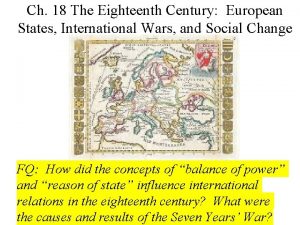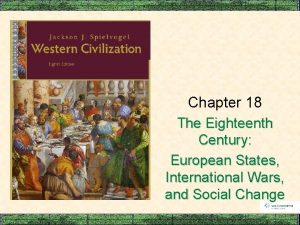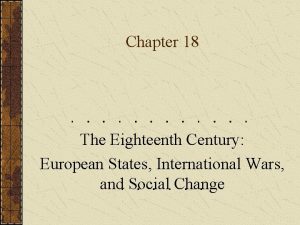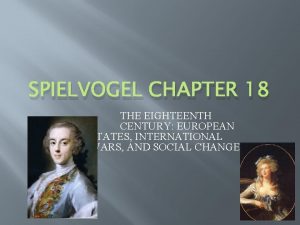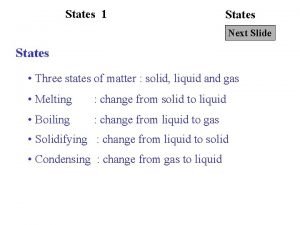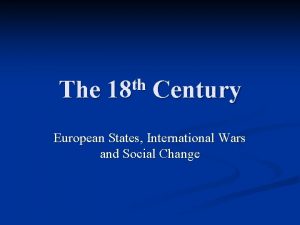Ch 18 The Eighteenth Century European States International













- Slides: 13

Ch. 18 The Eighteenth Century: European States, International Wars, and Social Change Key Terms

natural laws (p. 529) • A body of laws or specific principles held to be derived from nature and binding on all human societies even in the absence of written laws governing such matters.

natural rights (p. 529) • Certain inalienable rights to which all people are entitled, including the right to life, liberty, and property; freedom of speech and religion; and equality before the law.

enlightened absolutism (p. 529) • An absolute monarchy in which the ruler followed the principles of the Enlightenment b introducing reforms for the improvement of society, allowing freedom of speech and the press, permitting religious toleration, expanding education, and ruling in accordance with the laws.

patronage (p. 531) • The practice of awarding titles and making appointments to government and other positions to gain political support.

balance of power (p. 539) • A distribution of power among several states such that no single nation can dominate or interfere with the interests of another.

reason of state (p. 539) • The principle that a nation should act on the basis of its longterm interests and not merely to further the dynastic interests of its ruling family.

primogeniture (p. 544) • An inheritance practice in which the eldest son receives all or the largest share of the parents’ estate.

infanticide (p. 544) • The practice of killing infants.

agricultural revolution (p. 544) • The application of new agricultural techniques that allowed for a large increase in productivity in the eighteenth century.

enclosure acts (p. 547) • Laws enacted in eighteenth-century Britain that allowed large landowners to enclose the old open fields, thereby combining many small holdings into larger units and forcing many small farmers to become tenant farmers or wage laborers on the large estates.

cottage industry (p. 549) • A system of textile manufacturing in which spinners and weavers worked at home in their cottages using raw materials supplied to them by capitalist entrepreneurs.

tithes (p. 551) • A portion of one’s harvest or income, paid by medieval peasants to the village church.
 What were the 11 free states
What were the 11 free states Map of northern united states
Map of northern united states Big states vs small states guard against tyranny
Big states vs small states guard against tyranny Hình ảnh bộ gõ cơ thể búng tay
Hình ảnh bộ gõ cơ thể búng tay Frameset trong html5
Frameset trong html5 Bổ thể
Bổ thể Tỉ lệ cơ thể trẻ em
Tỉ lệ cơ thể trẻ em Voi kéo gỗ như thế nào
Voi kéo gỗ như thế nào Tư thế worms-breton
Tư thế worms-breton Chúa yêu trần thế
Chúa yêu trần thế Môn thể thao bắt đầu bằng chữ đua
Môn thể thao bắt đầu bằng chữ đua Thế nào là hệ số cao nhất
Thế nào là hệ số cao nhất Các châu lục và đại dương trên thế giới
Các châu lục và đại dương trên thế giới Công thức tính thế năng
Công thức tính thế năng
